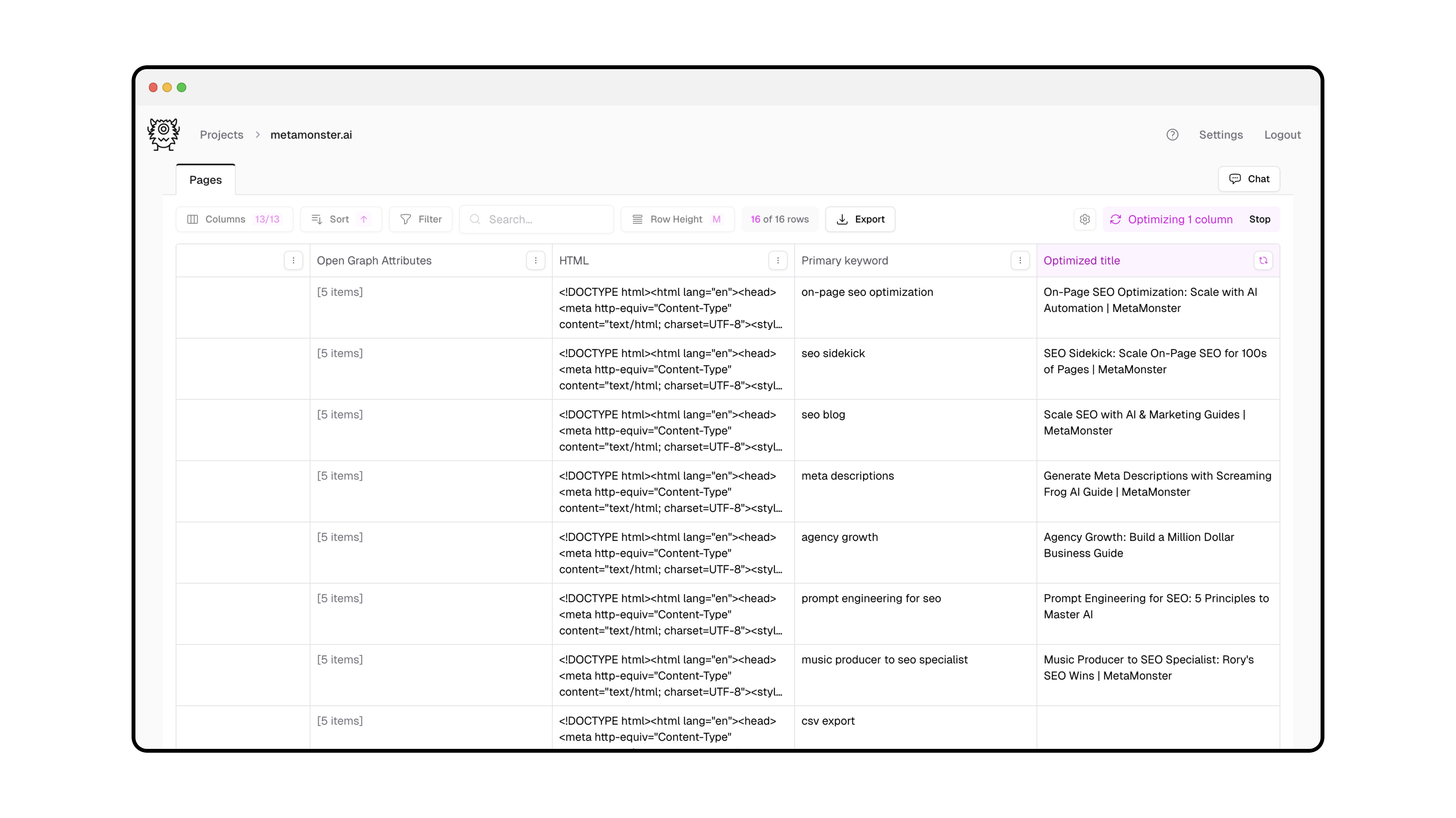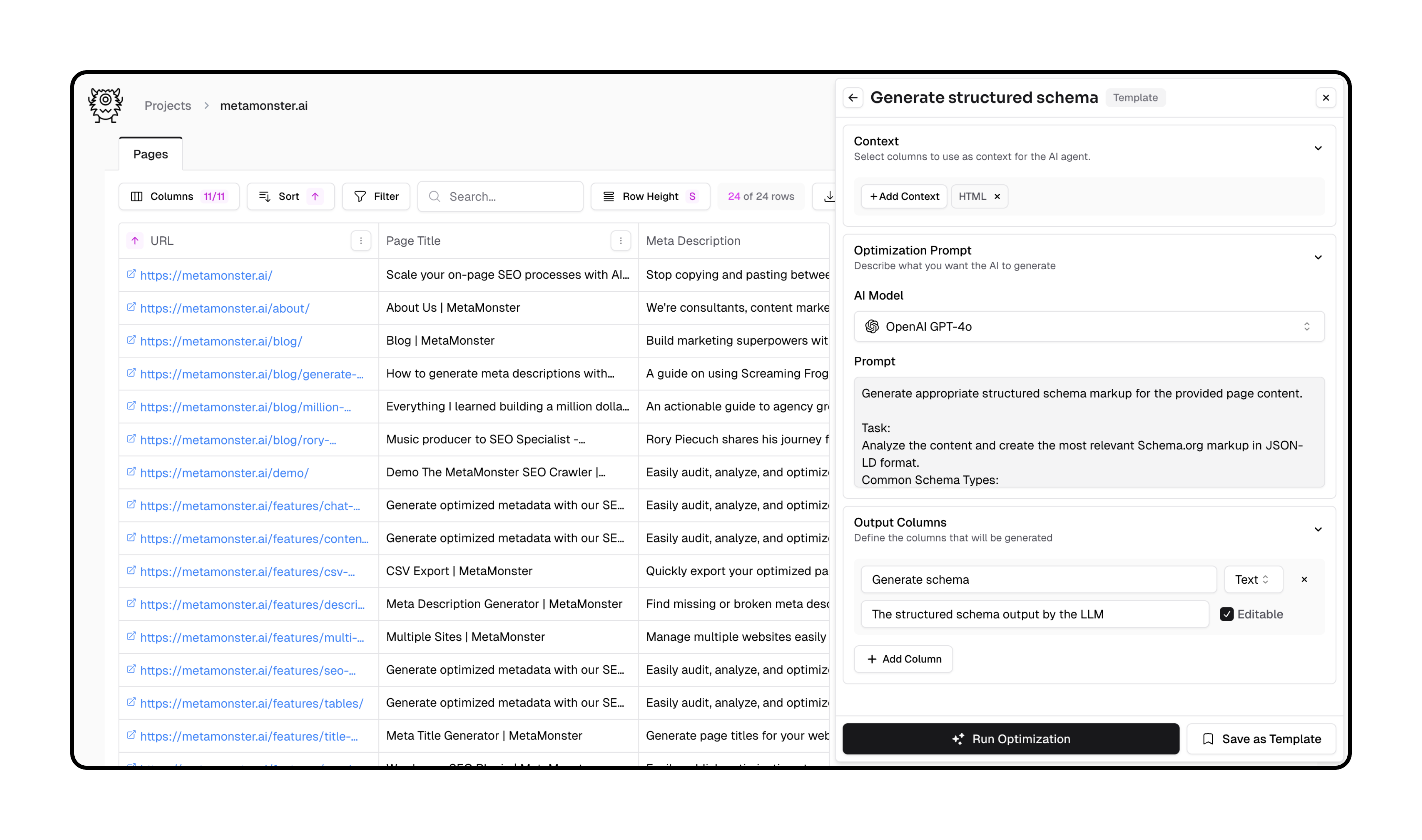WEB DESIGN & DEVELOPMENT
Stop launching client sites with placeholder SEO
Every agency has been there. New site builds where SEO becomes an afterthought — launching with "Home | Company Name" and wondering why organic traffic never materializes. Or major redesigns where years of existing content needs to be audited, migrated, and optimized while juggling design deadlines and client revisions.
Both scenarios end the same way: scrambling to fix SEO problems after launch that should have been handled during development. The client asks why rankings dropped or why their new site isn't getting traffic, and suddenly SEO becomes an emergency instead of an integrated part of the build process.

